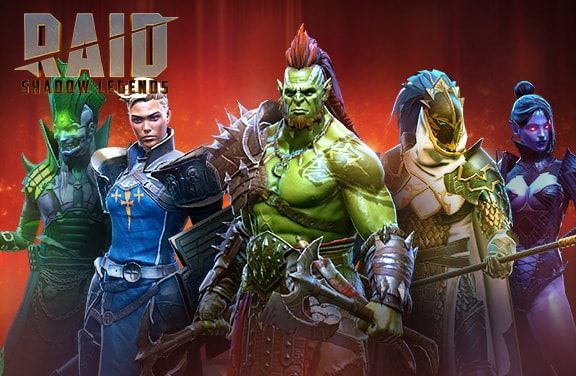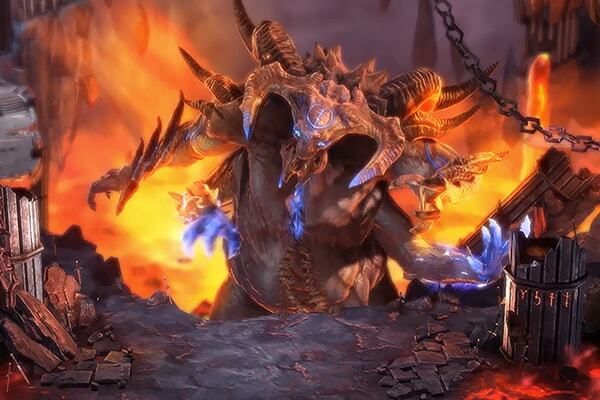How to Find and Create Music for Games
Interview with Borys Oliinyk, Director of the Audio Department at Plarium, for The Cue Tube blog.
Tell us a bit about how Plarium works with music for games.
It depends. For the sake of convenience, I would divide our work into two parallel processes. The first one is game production, and the other one is marketing. They are both really important.
Our department supports all marketing and almost all game projects of Plarium, with tasks coming from eight studios in the USA, Israel, Ukraine, and Russia. Writing music is only part of our work: we’re also involved in audio design, implementing sounds into our games, mixing, and recording voices.
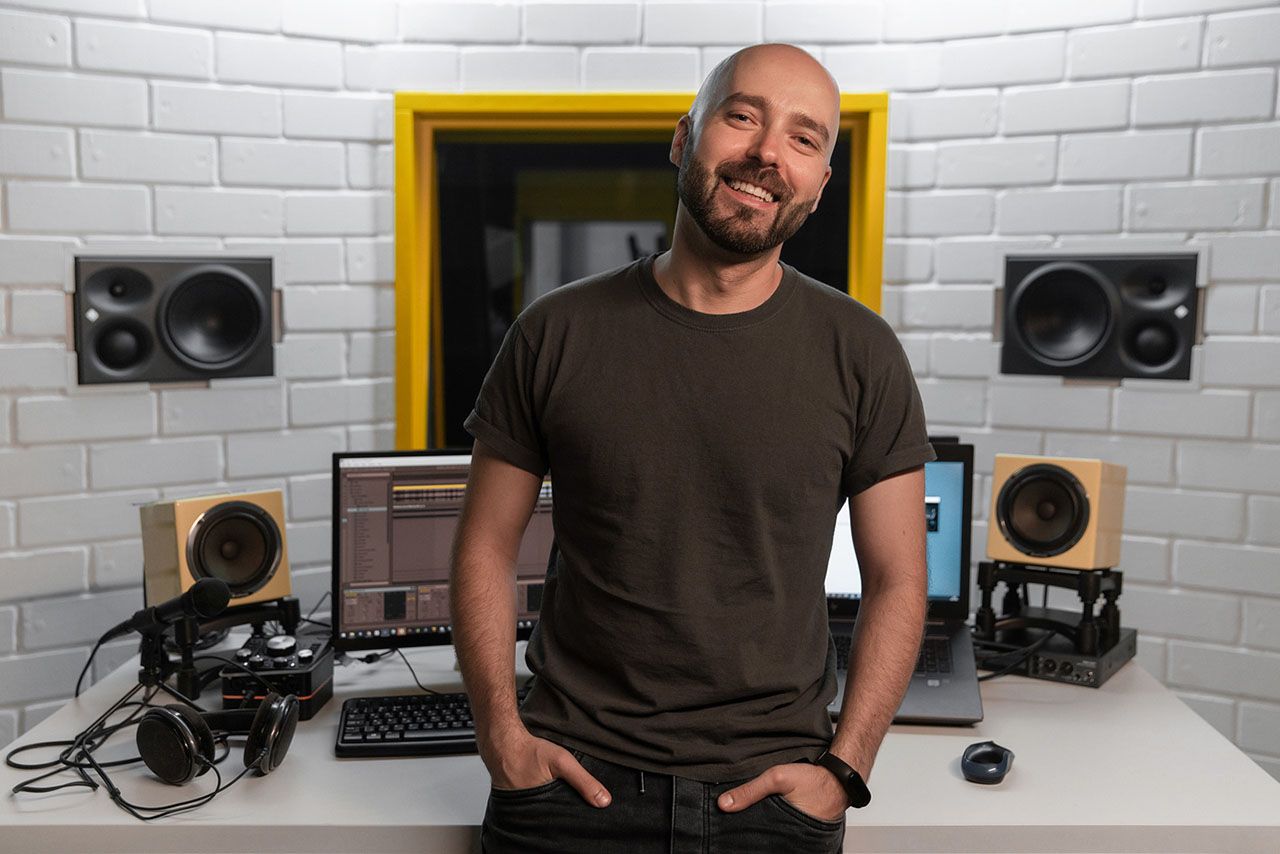
So, how do you go about creating music for marketing?
Due to the peculiarities of the advertising market, we need to produce as much content as we can. Supporting several game projects with commercials and trailers means that audio production speed really matters. Sometimes, we have only two days to finish everything! Usually, we use resources like Audio Jungle. This is the most powerful service in terms of the number of tracks you can find. Вut due to the great number of composers on this service and trends with certain music styles, sometimes it’s not so easy to find a track that sounds unique and fits the timing in a video.
Recently, we subscribed to Artlist.io: if I’m not mistaken, they work with individual composers and companies. That is, they sell SFX and music through subscriptions. It’s convenient, the license covers everything, so you can use this music freely on YouTube or any other platforms. On the other hand, with Audio Jungle, we need to consider where and how we’re going to use these tracks, and buy a license for each one of them.
Increasingly, game development companies are using stock audio libraries because of the production speed. There are lots of companies that create videos, but some of them don’t even have their own audio guy – just a video guy who picks the music and does basic editing. It’s definitely not enough for producing a video that should evoke an emotional response. That’s why services like Audio Jungle are very popular nowadays.
What’s your general approach to music for your projects?
It depends on the project. Sometimes, we may use stock audio platforms if there is a small feature that needs to be supported with music. But, for example, if we buy a track at Audio Jungle, and some Twitch streamer goes live and shows our game, they might get banned because of licensing issues. There are known cases in the industry when big AAA projects went live (were broadcasted on Twitch), and their channel got banned as a result.
When it comes to projects with an extensive storyline, you need voice acting and many hours of music, so it's best to work with a composer. This way, companies can always use their music anywhere, without worrying about getting banned on streaming platforms.
We compose music in-house, but we’d also like to collaborate with external composers in the future. Maybe, with composers and musical bands, we could record our compositions live.
Please tell us in more detail: at what stage do you join the development process, and how do you know exactly what should be produced?
We join the development process at the very beginning of a new project. It’s necessary for us to dive into the game’s storyline, understand the gameplay and its dynamics, and be able to present the game’s world using the tools at our disposal.

Perceiving music simply as background sounds is a waste of time. We try to define the function of music. Just imagine: a Game Producer gives you a task: “When wandering around the main castle in the game, players must hear an epic track”. You provide the resulting track, but the Game Producer rejects it, saying: “Too epic!”.
In order to understand better what your colleague (who’s not a musician) means, you should ask them a lot of questions. To start with, you may ask the following: “Okay, what should players do in this castle? Why should they go there in the first place?”.
Having learned from the Game Producer that “players upgrade there: they improve skills and look for better gear”, you should clarify the following: “What emotions are players expected to feel when they’re at this location?”.
Having figured out that it’s about player progress, make sure to go even deeper: “Should players feel excitement in this case?”.
But even having received an affirmative response, you may assume the following: “Perhaps what really matters is not excitement, but rather concentration on this part of the game. They will think: how exactly should they upgrade to win the next battle?”.
Ultimately, you and your Game Producer will come to the conclusion that epicness and excitement are not really necessary in this particular case. What you need is an inconspicuous track that helps players think, isn’t distracting, and creates a slight feeling of tension before the battle.
In this way, we interpret the language of the development team into the language of music.
How do you find the direction in which you write soundtracks for your games?
Using in-game sounds, we always strive to liven up the game’s world and its story. If you enter the game and keep hearing the same thing all the time, then you get bored quickly, you turn off the sound, thus literally cutting out half of what you’re meant to perceive. In my opinion, players should play with the sound on not just because we created it. To do that, we collaborate with our gaming community to understand what they want.
Again, the ability to ask questions plays a major role here. We’re interested in their perception of the game’s universe, what they feel when playing, what emotions they experience being at a particular location. If our expectations don’t match the feedback from the audience, we change the approach and start anew, so that the initial idea is conveyed as accurately as possible.
When writing music, we don’t only ask the development team questions, but also ourselves. We try to understand what players are doing on their device before they play the game, and what they will do afterwards. At what volume do they watch, for example, YouTube? To find this out, we ask our friends or colleagues in the office to show us the volume setting on their mobile devices.
There’s a loudness war in mobile games and ads nowadays; everyone’s trying to shout louder than their competitor. Instead, we try to create the audio in such a way that you can hear accents. At certain points we give players an auditory rest, and at other times we use sound to draw their attention to crucial gameplay moments.
A while back, a player from one of our casual titles sent us an email asking for an animation sound of a specific character there. He said that this sound made him happy, and he wanted to use it as a ringtone. Such feedback is better than any analytics; it’s the highest accolade for our team.
Do you use adaptive music in your games? Why is it that composers prefer it?
Game music is very different from film music. Music composed for movies is a ‘linear’ thing. But when it comes to games, writing music is one process, whereas implementing and adapting it to in-game events is another. Music is often written in layers that turn on and off depending on events in the game.
When you watch a movie, you know that a character will open a chest at a predefined time. In a game, a player can open a chest whenever they want; thus, we compose music in such a way that the transition from the “chest is closed” state to the “chest was opened” state feels natural at any given point in time - that’s why we call the music “adaptive”.
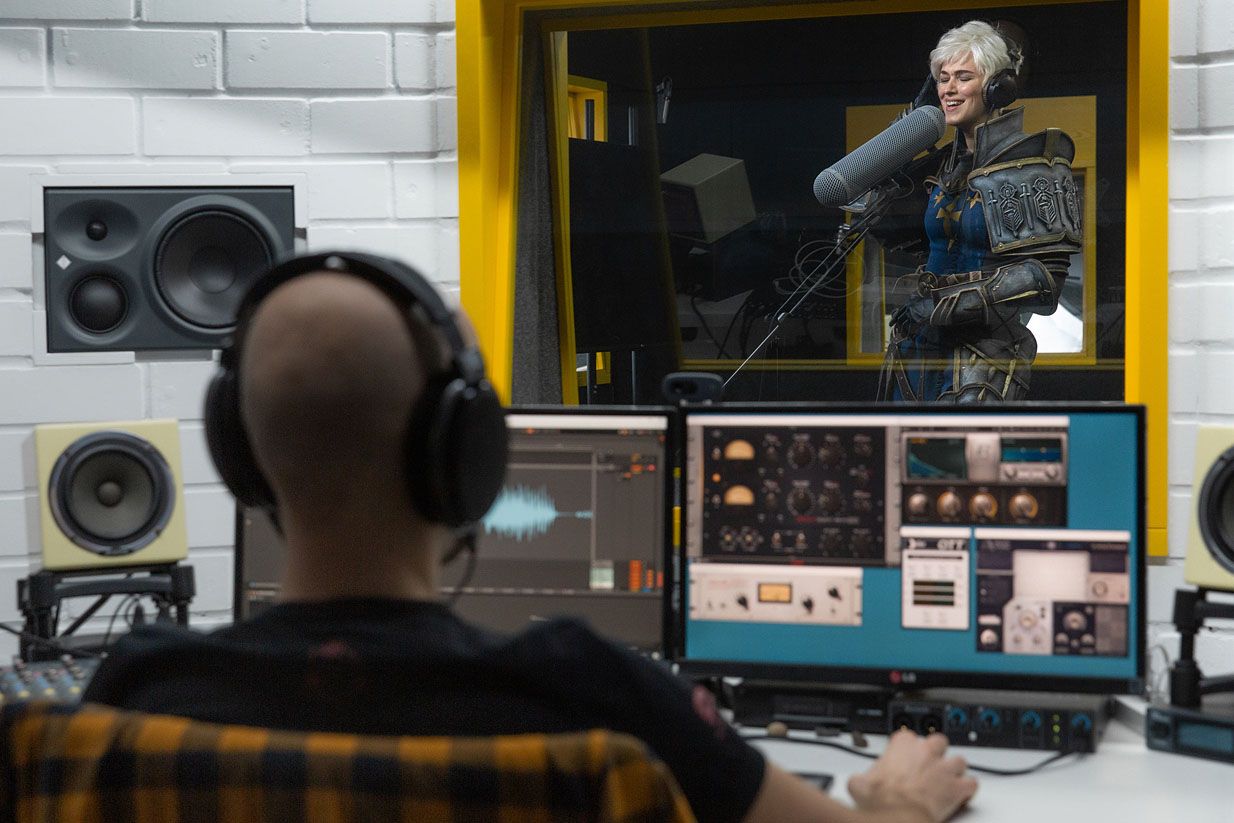
As far as I know, composers tend to prefer projects with adaptive music, because they have an obvious advantage over conventional projects with linear music. There’s an amazing YouTube video describing how the music for The Witcher 3: Wild Hunt was created using horizontal and vertical approaches. The game has nonlinear accompaniment.
The cool thing is that you can adjust the music to the gameplay and make it react to any events you want. Ultimately, the music becomes sort of a construction set with a life of its own, which you can manipulate using specific tools. We can freely shift accents, adapt to different game states, and come up with a vast array of accompaniment options that are not so time-restricted as in linear music. If the game designers decide to change something in-game, our music is able to adapt to that change.
Sometimes, we can’t even say where and when the music will change – we need to play the game to find out! So, adaptive music is a very unique and exciting phenomenon in game development.
How can rookie composers improve their skills and start working with game development companies?
There’s a great way to hone your skills. First off, choose a commercial or gameplay trailer you like, remove the audio from it, and recreate the audio yourself. If your task is to get familiar with the tools, try repeating the audio precisely, because this way you’ll get to know how it all works and improve your aural memory. Alternatively, if you want to develop your creative thinking, try improving the audio and creating something absolutely new.
I receive 3-5 emails a week from composers showing their portfolio. Many of them are professional and interesting composers. But I know firsthand that it’s really hard to get anyone interested in your work, given the competition on the market nowadays. One thing that may help you get a job on a project is to take a close look at the company’s products.
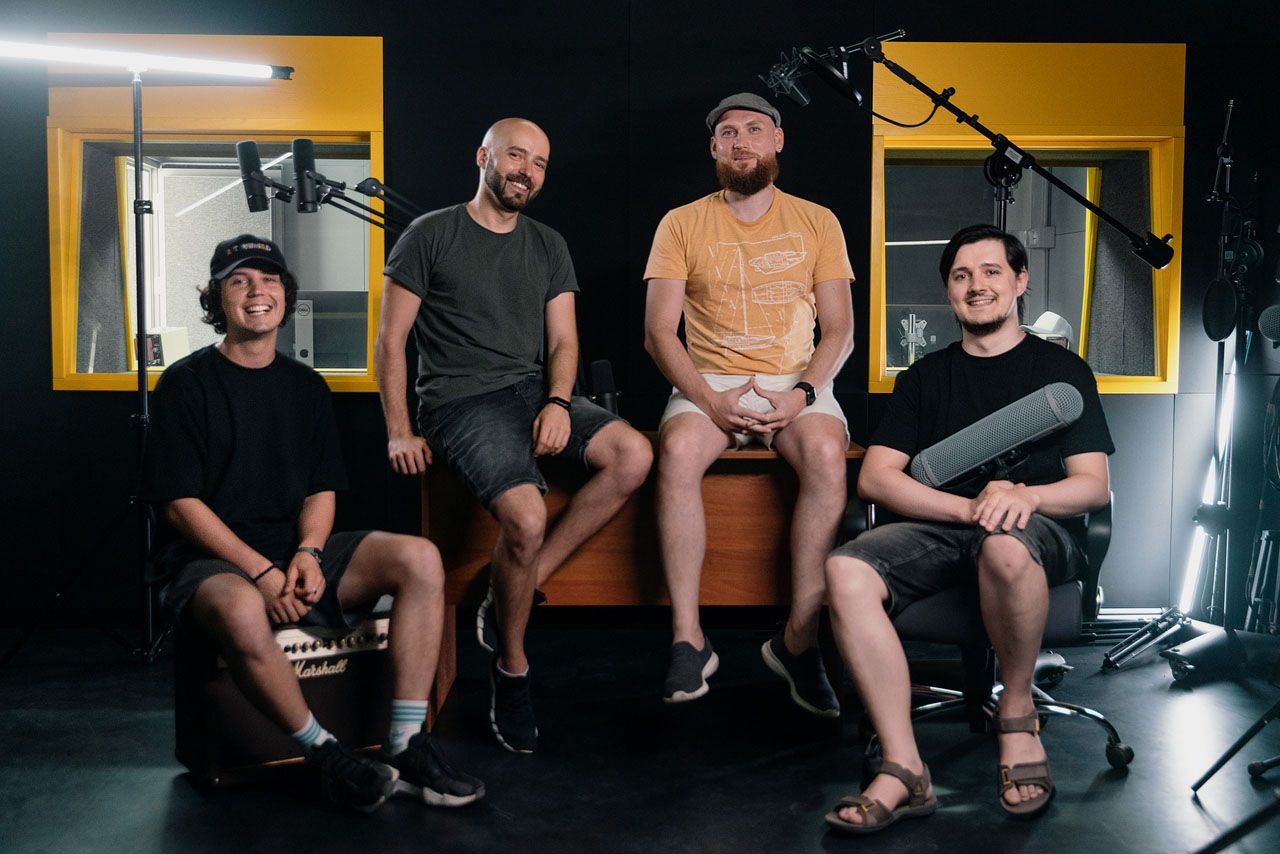
From my freelancing experience, I know how it works in practice. I created an account on Audio Jungle, offered my works for sale, and searched for customers who would actually buy my music. If they did, I sent them emails saying: “You’ve just bought my composition at Audio Jungle, so you might need some help with mixing or other audio stuff. I can definitely help you – just show me your products!” Sometimes, I took a video from their website, remade the music, and sent it to them, saying: “That’s why you need me!” That’s how I got jobs back in the day. You need to know how to find customers and ‘drop the bait’, so to speak!
Now, let’s imagine that you are a game developer. You have a game that was released a year ago and another you are currently working on. The former already has music, and you’ve probably already hired a composer for the latter. If you get an offer from another composer now, would you choose to work with them? My guess is this: if they show you something special, you would. The thing I call ‘special’ is the attitude towards the product. Take an existing company’s game and try to make the music better, find a fresh sound or approach, think of what to improve, and create a demo showing how the game may feel if you worked with that composer.
In my case, I tend to look holistically at all of the company’s products, including ads. We want people to know that we really care about the audio. That’s why we play our games for hours to figure out if there is something we can improve. I think this attitude can be helpful for any rookie composer.
